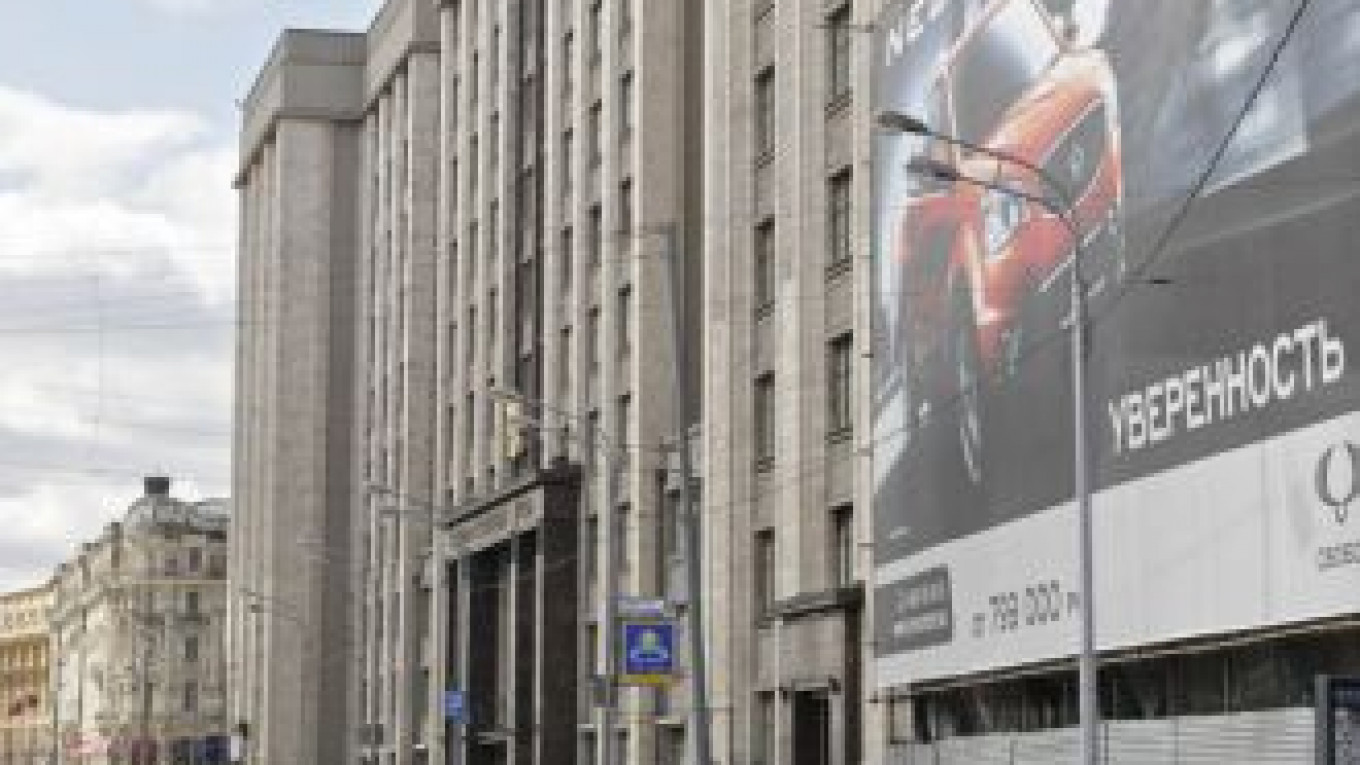Correction appended
The Finance Ministry’s latest proposals on luxury taxes put the rate for real estate at 0.05 percent to 0.3 percent, while owners of cars with engines of 410 horsepower or more will also be paying more — a rate that will affect less than 2 percent of all cars in the country.
The new real estate tax, which will replace existing ones on buildings and land, will be based on the cadastral value of the property — which will be close to the market value. It has been calculated throughout 12 regions and is scheduled to be completed for the whole country by the end of this year.
The current “inventory” price estimate of buildings and land that is used for tax calculation purposes can be as much as 10 times lower than the market value.
Municipalities might get the right to increase the rate up to 0.5 percent, depending on the value of the property, said Ilya Trunin, a department director at the Finance Ministry. The higher rate could apply to the total cost of the property, or it may be a progressive scale.
The ministry plans deductions in the form of the estimated value of a set number of square meters — which would apply to certain groups, like veterans or pensioners.
The goal is to not increase the tax burden for the majority of property owners, sources said. A standard deduction could be 30 meters, and the number of dependent minor children could also affect the calculation. There are many different opinions about the size of deductions, Trunin said.
The best approach is to establish a minimum rate at the federal level and let the municipalities have the right to increase it. In any event, according to ministry documents, the final rates and deductions can only be determined after the nationwide evaluations are complete.
In each of the 12 regions where evaluations have been done, not more than 600 properties of 300 million rubles or more have been found, deputy head of the Federal Tax Service Svetlana Bondarchuk told Vedomosti.
In Moscow, about 15 to 20 deals with property worth more than $10 million take place per year, and in St. Petersburg about one or two, said Natalie Katz, managing director of the Manor agency. According to IntermarkSavills, prices of the top 100 apartment deals in Moscow in the first quarter of this year ranged from $3.4 million to $30 million, and for suburban homes the average top price was $25.5 million in 2011.
The actual owners of expensive properties often hide their identities using offshore companies, said Dmitry Kostalgin, a partner at Taxadvisor. There are other ways of avoiding this tax, he added. For example, by dragging out a challenge to the assessed value, putting property into charter capital, or dividing its ownership.
The Finance Ministry intends to deal with such schemes, Trunin said. The tax rate of 0.3 percent can be set regardless of whether the property is owned by a private individual or a company, or who owns what part of it.
Re-registration of real estate with the goal of avoiding the tax needs to be made unprofitable, he said, by compelling the purchasing company to use the full cadastral value of the property.
Luxury cars are also targets for increased tax revenues. A recent meeting of the commission for budget planning discussed increasing the vehicle tax for late model cars with engines of 350 horsepower or more to the rate of 300 rubles ($10) per horsepower and also allowing regional governments and municipalities to add to that rate.
The Finance Ministry proposes to up the threshold for any luxury tax on automobiles with engines of 410 horsepower or greater. One source said this is necessary in order to support the local manufacturing of BMWs in Kaliningrad — the BMW 750Li, popular among state officials, has a 408-horsepower engine.
Correction: An earlier version of this article incorrectly stated that the Finance Ministry proposed taxing cars with 410-liter engines and that the BMW 750Li has a 408-liter engine; in fact, the Finance Ministry proposed a tax on cars with engines that have 410 horsepower or more, and the BMW 750 Li has a 408-horsepower engine.
A Message from The Moscow Times:
Dear readers,
We are facing unprecedented challenges. Russia's Prosecutor General's Office has designated The Moscow Times as an "undesirable" organization, criminalizing our work and putting our staff at risk of prosecution. This follows our earlier unjust labeling as a "foreign agent."
These actions are direct attempts to silence independent journalism in Russia. The authorities claim our work "discredits the decisions of the Russian leadership." We see things differently: we strive to provide accurate, unbiased reporting on Russia.
We, the journalists of The Moscow Times, refuse to be silenced. But to continue our work, we need your help.
Your support, no matter how small, makes a world of difference. If you can, please support us monthly starting from just $2. It's quick to set up, and every contribution makes a significant impact.
By supporting The Moscow Times, you're defending open, independent journalism in the face of repression. Thank you for standing with us.
Remind me later.






